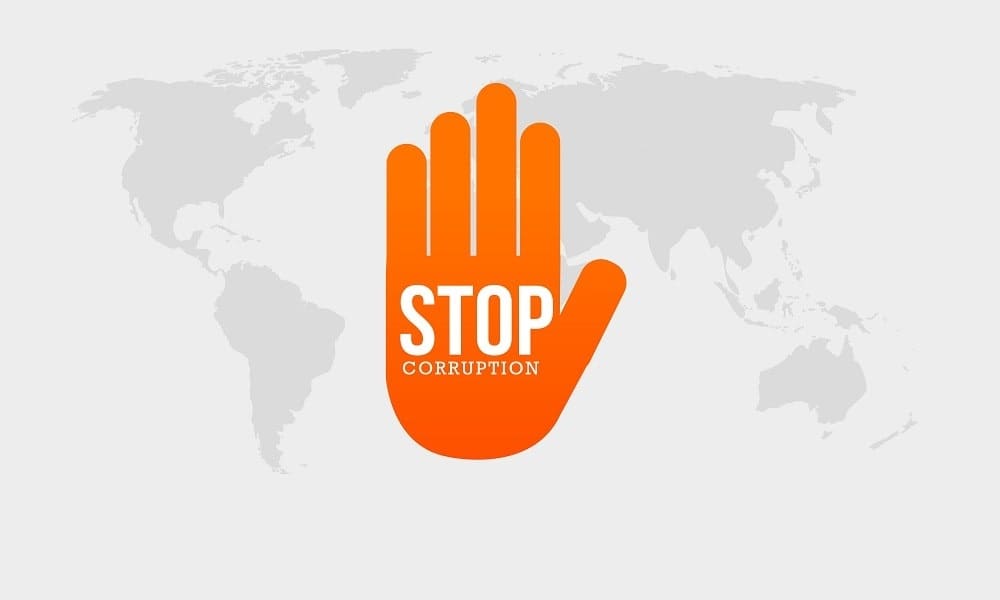In a decision from June, the Second Circuit expanded the reach of U.S. federal criminal law to potentially cover any foreign employer/employee relationship corrupted by bribe payments via the U.S. financial system. Munger, Tolles & Olson’s Jonathan Kravis details the full implications of the decision.
In United States v. Napout, the Second Circuit affirmed the convictions of two former officials of the global soccer organization Federation Internationale de Football Association (FIFA) for conspiracy to commit honest services wire fraud. The defendants, who lived and worked in South America during the conspiracy, argued on appeal that the application of the honest services fraud statute to their conduct represented an impermissible extraterritorial expansion of the statute and rendered the statute void for vagueness. In rejecting these arguments, the Second Circuit greatly expanded the reach of United States federal criminal law to corrupt activity by private employees and public officials located outside the United States. This article summarizes the facts of the case and the Second Circuit’s reasoning and discusses the implications of the decision for the scope of criminal enforcement in this area moving forward.
Facts of the Case
As summarized in the Second Circuit’s opinion, the facts of the case against the defendants were as follows. Based in Switzerland, FIFA is the organization responsible for organizing and governing international soccer. FIFA’s membership comprises national soccer associations, which are grouped into confederations by continent. The two confederations relevant to this case are the Confederation of North, Central American and Caribbean Association Football, or “CONCACAF,” and the South American confederation, which is called la Confederacion Sudamericana de Futbol, or “CONMEBOL.”
One of the most important responsibilities of FIFA and its confederations is the organization of international soccer tournaments, which take place around the world. These international tournaments include the World Cup, as well as the Copa America and the Copa Libertadores, two regional tournaments hosted by CONMEBOL. These tournaments are very popular, and they generate a huge amount of revenue from the sale of television broadcasting rights and advertising and marketing rights. This case was about the bribery of soccer federation officials in connection with the distribution of those valuable broadcasting and marketing rights.
Defendant Jose Maria Marin was the president of the Brazilian national soccer federation. Starting in the spring of 2012, Marin and other South American soccer federation officials began accepting bribes from a company called Datista. In exchange for the bribes, these officials allowed Datista to purchase exclusive broadcasting and marketing rights for the Copa America soccer tournament. The bribes to these officials ranged from $1 million to $3 million per edition of the tournament, which was held every four years.
Marin and his co-defendant Juan Angel Napout also accepted bribes in connection with the Copa Libertadores tournament. Napout was the president of Paraguay’s national soccer federation. Starting in 2012, Marin and Napout and other soccer federation officials took bribes of $300,000 to $1.2 million from a company called Torneos in exchange for allowing Torneos to purchase the exclusive rights to broadcast Copa Libertadores matches on television. Marin and Napout received similar bribe payments in exchange for the right to purchase broadcasting and marketing rights for domestic tournaments and World Cup qualifying matches associated with their respective countries’ national teams. Given the amount of time they spent in their respective positions, Marin and Napout likely each received several million dollars in total from these bribery schemes.
In 2015, Marin, Napout and a total of 28 other soccer federation officials and company executives were charged with participating in racketeering, money laundering and wire-fraud conspiracies. In 2017, Marin, Napout and one other official proceeded to trial. The other official was acquitted of all charges, while Marin and Napout were convicted of wire-fraud conspiracy and some related charges and acquitted of others. Marin was sentenced to 48 months’ imprisonment, and Napout was sentenced to 108 months’ imprisonment. Both were ordered to pay millions of dollars in fines and forfeiture.
The Second Circuit Decision
On appeal, Marin and Napout raised two principal arguments, both concerning the application of the honest services wire-fraud statute to their conduct.
The honest services fraud statute, 18 U.S.C. 1346, was enacted in the wake of the Supreme Court’s decision in McNally v. United States, 483 U.S. 350 (1987). Prior to McNally, the federal courts had interpreted the mail- and wire-fraud statutes to cover a scheme to defraud victims of their intangible right of honest services. Several pre-McNally decisions recognized that this honest services theory of fraud included an employee’s scheme to defraud his employer by accepting bribes in the course of his employment. McNally rejected this interpretation of the fraud statutes, holding that they criminalized only fraud schemes targeting tangible property. Congress responded by enacting Section 1346, which states that the term “scheme or artifice to defraud” in the federal mail- and wire-fraud statutes “includes a scheme or artifice to deprive another of the intangible right of honest services.” In Skilling v. United States, 561 U.S. 358 (2010), the Supreme Court held that the “intangible right of honest services” protected by Section 1346 is limited to bribery and kickback schemes (and therefore does not criminalize, for example, undisclosed conflicts of interest).
Marin and Napout first challenged their convictions for conspiracy to violate this statute on the ground that their convictions amounted to an impermissible extraterritorial application of Section 1346. The Second Circuit rejected this argument. As an initial matter, the appellate court agreed with Marin and Napout that the honest services fraud statute does not contain any clear indication that it applies extraterritorially. However, the court concluded that the FIFA case involved a domestic, rather than extraterritorial, application of the statute. The court reached this conclusion by reasoning that the focus of the honest services fraud statute is not merely a scheme to defraud, but rather the use of wires in furtherance of a scheme to defraud. Citing its recent decision in a civil RICO case, Bascunan v. Elsaca, 927 F.3d 108 (2d Cir. 2019), the Second Circuit held that, so long as the use of the wires was essential and not merely incidental to the scheme to defraud, then wire transmissions within the United States would trigger application of the statute, even if the rest of the scheme was hatched and executed outside the United States.
Applying this rule to the facts of the case, the Second Circuit had no difficulty concluding that the use of domestic wires was essential to the defendants’ scheme to deprive FIFA and their regional confederation, CONMEBOL, of their honest services through bribery. The court explained that the defendants received their bribe payments through wires to and from bank accounts in the United States. The bribe payments, of course, were central to the scheme, and the U.S. wires provided a key means of making many of those payments.
The defendants’ second challenge to the honest services fraud statute was an as-applied void for vagueness argument. The vagueness doctrine is intended to ensure that ordinary people can understand what conduct a criminal statute prohibits. The defendants argued that the honest services fraud statute did not provide fair notice of its application to foreign employees working for a foreign employer.
Reviewing for plain error, the Second Circuit rejected this argument as well. The court noted that the honest services statute itself does not specify exactly which relationships it covers. The courts have reasoned that the statute criminalizes accepting bribes or kickbacks in connection with a fiduciary obligation, but the law is unsettled as to what law the courts should consider in deciding whether a particular relationship is covered by the honest services fraud statute. The Second Circuit noted that several recent cases in the domestic context have concluded that the honest services fraud statute prohibits bribery in connection with a relationship analogous to that of an employee to an employer (See United States v. Milovanovic, 678 F.3d 713 (9th Cir. 2012) (en banc); United States v. Rybicki, 354 F.3d 124 (2d Cir. 2003) (en banc)). Because the law in this area remains “unsettled, at best,” the Second Circuit held that the application of the honest services fraud statute to the defendants was not plain error.
In a concurring opinion, Judge Hall wrote that he would affirm the convictions even if the defendants had preserved their vagueness argument. Judge Hall explained that the law is clear that when an employee accepts bribes in connection with the business of his employer, then that employee has committed honest services fraud, and that principle applies with equal force to foreign employment relationships. Judge Hall noted that the codes of conduct of FIFA and CONMEBOL both included provisions explicitly prohibiting the acceptance of bribes or kickbacks by their officials. Those provisions, said Judge Hall, clearly brought the defendants’ employment relationships within the scope of the honest services fraud statute; therefore, the defendants’ convictions were not void for vagueness.
Implications of the Second Circuit’s Decision
As noted above, the Second Circuit reviewed the FIFA defendants’ vagueness challenge for plain error only, and so it is theoretically possible that a future panel could conclude that application of the honest services fraud statute to a foreign employment relationship is void for vagueness. However, that outcome seems unlikely in light of the fact that the FIFA panel did not note any authority to support that proposition, and Judge Hall’s concurrence was fairly straightforward. Therefore, the probable impact of the FIFA decision will be that the Justice Department can prosecute bribery of foreign employees like Marin and Napout so long as some of their bribe payments were made using wires in the United States. And because many financial institutions are located in the Second Circuit, which includes New York, the Second Circuit’s adoption of this theory is likely to cover most instances of this conduct.
This is a legal principle with far-reaching implications, potentially covering any foreign employer/employee relationship that is corrupted by bribe payments using the United States financial system. The FIFA case was a high-profile example of such an application of the honest services fraud statute, but the Second Circuit has upheld honest services fraud convictions based on far more mundane employer/employee relationships within the United States. For example, in United States v. Rybicki, 354 F.3d 124 (2d Cir. 2003) (en banc), the Second Circuit upheld the honest services fraud convictions of claims adjusters who accepted bribes from personal injury attorneys. In United States v. Tanner, 942 F.3d 60 (2d Cir. 2019), the court upheld the honest services fraud conviction of a pharmaceutical manufacturer employee who accepted bribes from a specialty pharmacy. And in United States v. Fasano, 25 Fed. Appx. 23 (2d Cir. 2001), the court upheld honest services fraud convictions arising out of a scheme to bribe a stockbroker. It would now seem that the statute also applies to the many, many foreign instances of such relationships, so long as the domestic wire requirement is satisfied.
One reason that this is such a counterintuitive application of Section 1346 is that, in this day and age, the notion that the primary focus of the honest services fraud statute is the protection of wires seems antiquated. In the 21st century, interstate wires are everywhere. Emails, text messages and communications sent through messaging applications all constitute interstate wires, even when the messages are sent and received in the same state, so long as the messages are routed through a server located outside the state. Similarly, virtually every financial transaction — from clearing a check to making a wire transfer — involves the use of an interstate wire, even if both parties to the transaction are located in the same state. In the domestic context, it is hard to imagine a successful corruption scheme that does not use an interstate wire. It is for this reason that most public corruption prosecutors think of the interstate wire element as a box to be checked rather than the central focus of the statute. And so it is surprising that the Second Circuit would conclude that the prosecution of a foreign employee for accepting bribes in connection with work for a foreign employer would constitute primarily a domestic application of the statute merely because many of the bribe payments were made through interstate wires in the United States.
Open Questions
There are several things companies and employees should bear in mind about the Second Circuit’s FIFA decision going forward.
The first is the possibility that the theory of honest services wire fraud upheld in the FIFA decision could apply to foreign government officials. Suppose, for example, that a Brazilian legislator accepts $50,000 from a Brazilian company to vote in favor of legislation pending before the National Congress of Brazil, with the payment made via wire transfer into the legislator’s bank account in New York. On the surface, it is hard to see how that conduct is distinguishable from that of the FIFA defendants. If anything, the Brazilian legislator seems closer to the heart of the honest services fraud statute, which in the domestic context is more often applied to public officials than to private employees.
But there is another factor here: Congress made a considered judgment not to apply United States federal criminal law to foreign public officials when it enacted the Foreign Corrupt Practices Act (FCPA). The FCPA criminalizes the bribery of foreign public officials by United States companies, but the statute applies only to the payor, not to the public official receiving the bribe. In the recent case of United States v. Hoskins, the Second Circuit recognized that this decision reflected a considered legislative judgment by Congress not to criminalize the conduct of foreign public officials. On that basis, the Second Circuit held that foreign public officials therefore also cannot be prosecuted for conspiracy to violate the FCPA. It is possible (though not certain) that Second Circuit would conclude that this feature of the FCPA changes the vagueness analysis when the honest services fraud statute is applied to a foreign public official, as opposed to a foreign private employee.
Another principle to bear in mind after the FIFA case is the potential breadth of interstate wires that could provide a basis for federal criminal jurisdiction in the United States. In the domestic context, an interstate wire must merely further the scheme to defraud in some way for the statute to apply; this is a fairly relaxed standard. The FIFA opinion, and the Bascunan decision upon which it relied, suggest that the standard for application of the honest services fraud statute to foreign relationships is somewhat higher; the wire must be essential to the scheme, not merely further the scheme in some incidental way. In the FIFA case, the wires were used to pay many of the bribes, and it is easy to see how those wires were essential to the scheme in that case. But what about a case where just a few — or just one — of many bribery payments were made using United States wires? What if the United States wire is merely used to convert into U.S. dollars a bribe payment that travels from one foreign bank account to another? Or what about a case where a critical meeting between the conspirators was arranged using a United States wire — like a text message or an email originating from a server located in the United States — but the payments were all made overseas? Or what about a case where the act performed by the foreign employee in exchange for the bribe is accomplished through a United States wire? The FIFA decision leaves open the question of which United States wires will be considered essential to a foreign bribery scheme. (The Second Circuit opinion did not consider whether it was error that the district court likely did not instruct the jury that it had to find that the wire was essential to the scheme.)
Conclusion
The long-term impact of the Second Circuit’s FIFA decision likely will depend in large part on the Justice Department’s appetite for bribery cases involving foreign employer/employee relationships that use United States wires. But whether the FIFA case turns out to be the first in a series of such cases, or whether it is a high-profile outlier, the Second Circuit’s decision represents a high-water mark in the federal courts’ interpretation of the breadth of the honest services fraud statute post-Skilling.



 Jonathan Kravis is an experienced trial lawyer and former federal prosecutor in the Washington, D.C. office of
Jonathan Kravis is an experienced trial lawyer and former federal prosecutor in the Washington, D.C. office of 










